New Realizations: An Interview with Hae Ri

Hae Ri escaped from North Korea out of fear that she would be sent to a political prison camp for watching South Korean TV shows after it happened to her friend's family. After arriving in China, she connected with our networks and made the journey to safety in South Korea. Today she is successfully resettled and has been working toward her goals. She is currently studying to be a nurse and took part in our English Teaching & Cultural Exchange Program.
Anna, one of our resettlement assistance coordinators, recently met up with Hae Ri to learn more about her life in North Korea and how she is doing now. Read the interview below:

Anna: Did you want to move to South Korea?
Hae Ri: After graduating from high school, I learned a lot of things about South Korea through CDs and DVDs and the stories from my mom and dad after their trips to China.
The crackdown on CDs and DVDs were not that harsh until I entered 4th grade. It wasn’t a sudden change, but a gradual one. When more people have access to CDs, you notice the change in their awareness.
When I saw the world outside of North Korea in those CDs and DVDs, I was amazed and I hoped I could see it before I died.
I couldn’t believe I was actually in South Korea when I got here because it felt like a dream. I often wished to go to South Korea during middle school whenever I watched foreign films at my friend’s house.
Funny thing is, officers and the elite are the ones who have easy access to these things. My friend's father’s job was security related, so I was able to watch many dramas at her house. One day her house was searched and her parents were sent away, so she stayed at our other friend's house. She could not keep herself from watching “Stairway to Heaven” though, so me, my friend, and my friend’s aunt all watched it too. She was eventually caught.
In a political prison camp, you are not treated as a human being and are beaten over and over. People were called in one by one, and this made me worried. If you come from a powerful family or have connections, you may be able to get yourself out of there, but that did not apply to me. If I went there, there was no way out and I would be blamed for everything. That made me determined to leave North Korea as soon as I could.

Anna: What would you like to tell to your friends who watched films together in North Korea?
Hae Ri: We shared everything when we were at school because we were the closest friends, but now I am the only one who is living in this place we all dreamed of going to. It is frustrating that I don’t know how they are doing while I am living my dream.

Anna: Do you think about your hometown a lot?
Hae Ri: I imagine what it is like there now. When I talk to my uncle over the phone, it hurts me to hear that people are having a hard time finding food every day. I also miss my friends. It would be great to reunite with them.

Anna: What is the first thing you want to do with your friends?
Hae Ri: I want to travel. I was told that Jeju Island is beautiful, and I would like to visit with my friends. That is what motivates me to do well until they can join me. I am sorry that I couldn’t even say goodbye to my best friend. It would be wonderful to see my friends again and enjoy this freedom together.

Anna: What is the biggest difference between North and South Korea?
Hae Ri: There are just too many to list and more differences than commonalities. Because there was no freedom in North Korea, after I finished school there, I didn't work. Even though I learned skills, there was no place to use them. I didn’t have any specific plans for what I should do or hopes for the future. I felt powerless, thinking that there was going to be nothing to receive in return for my hard work.

Anna: What have you achieved since your resettlement in South Korea?
Hae Ri: Being a nurse was one of the best jobs for women in North Korea. There was a school for that, but it's usually for people who have enough money for the tuition, which I couldn’t afford. Even if you went there, studying might not be your priority because people just need their degree and just need to know how to use a needle to work. Of course, I wanted to go there.
It was still hard for me to decide to study once I came to South Korea, but then a friend from church suggested that I should begin studying since I am still very young. I thought I really would achieve nothing if I continue to live like this. So now I am preparing for college, and I already passed the test to become a nursing assistant.

Anna: What was it like to hear that you were accepted?
Hae Ri: Well, I did feel a sense of accomplishment, but at the same time, it felt like a beginning for something new. I wasn’t satisfied to have the story end there. But you know, they say a journey of thousand miles begins with the first step. I just made my first step, and I need to continue moving forward. It’s also important that I don’t rush things too fast and work on one thing at a time, since I am new to a lot of things and there is a lot left to learn.

Anna: What was the first thing you tried after your resettlement?
Hae Ri: The first thing I wanted to eat was samgyeopsal (grilled pork). Back when I was in North Korea, I couldn’t afford to eat this so I would just eat fried vegetables. I only saw this through Korean dramas. In South Korea, you have a variety of foods to choose from, like pizza and hamburgers. My grandmother, who worked at Kaesong Industrial Complex, came back with a Coke one day. There was a picture on the bottle that looked like some kind of bread I didn't recognize—it was actually a picture of a hamburger! I didn’t like the taste of hamburger at first, but now I love it!

Anna: Did you visit your grandmother? Wasn’t Kaesong Industrial Complex far from where you lived?
Hae Ri: It took me two days to get to Kaesong. It was an arduous journey. I would go there once every three to four years by train. There is no express line to Kaesong, so the train would stop at several stations, and I had to wait for several hours at the station just standing or lying on the ground because there weren’t enough seats.
In North Korea, you need a certificate to move to different places, which is especially difficult for Kaesong because there is a lot of exchange going on there with South Korea. So one day, I walked for a full day to Kaesong. While I was climbing a mountain to get there, I came across the military. The military personnel asked where I was going and why I was going to Kaesong. Then you have to give all the food and everything you have in your bag so they will let you go. When I first came to South Korea, I wondered if South Korea is a lot smaller than North Korea because it only takes three hours to get almost anywhere here. It would take two days in North Korea to get to a place you can go within three hours in South Korea. Not only the transportation is bad, but there is always the risk of getting caught while you are on the move.

Anna: What was difficult when you got to South Korea?
Hae Ri: My accent. I hated to hear that no one would take me for a part-time worker because I am from North Korea. I hated myself for being born in North Korea, and I thought people were staring at me because I was weird. This made me think more about the reasons for others to keep a distance from me. Changing my accent was difficult.Studying was a big challenge as well. Back in North Korea, I didn’t have much hope for achieving anything because of my family background. My accent is a challenge for daily living, but learning how to study was the most difficult challenge for fulfilling my dream.

Anna: What were your first experiences with the outside world?
Hae Ri: At home, no one really had sincere respect for Kim Jong-il or Kim Jong-un. Watching the things about Kim Jong-un, I thought it was ridiculous that people actually cried for the leader. However, I was shocked to realize the truth about the Kim family. I thought Kim Jong-un lived a very modest life until I was in Hanawon and learned that he spends so much on living a luxurious life, which could instead be spent saving so many people who are starving. I watched the Korean film called, “When the Azalea Blooms” when I was in China. The film was about Kim Jong-il, and that film also opened my eyes and made me realize what was actually going on.

Anna: What did you think when you first watched the film?
Hae Ri: I didn’t believe it at first, but when I watched it again, things became clear. There is a huge difference between knowing the truth and not knowing it. I want more people to hear the message and share what I realized. People get lost in their daily lives without thinking about their dreams.

Anna: Is there any message you want to give to your friends?
Hae Ri: I believe unification will take place in the future, so I have to resettle here successfully so I can be an example for my friends later on and lead them. That keeps me working hard even when things are tough. That’s what my mom thinks too. I need to prove that my decision was right and that I can do well here. I always wish the best for my friends in North Korea. When I think about my future, I am always thinking of ways to help North Koreans, and ways to return the help I received from LiNK to society.
It is just a dream for now, but I would like to do something meaningful, like sending aid materials to support North Korea.

We are only able to provide crucial support for North Koreans like Hae Ri with your help!
A North Korean Refugee’s Daring Escape By Boat | Gyuri Kang’s Story
Escaping from inside North Korea remains almost impossible today. Borders remain sealed by the legacy of pandemic-era restrictions, while surveillance in China continues to intensify. But in 2023, a group of North Koreans crossed into South Korean waters on a small fishing boat—a rare and extraordinary way to reach freedom. Abroad the vessel was 22-year-old Gyuri Kang with her mother and aunt.
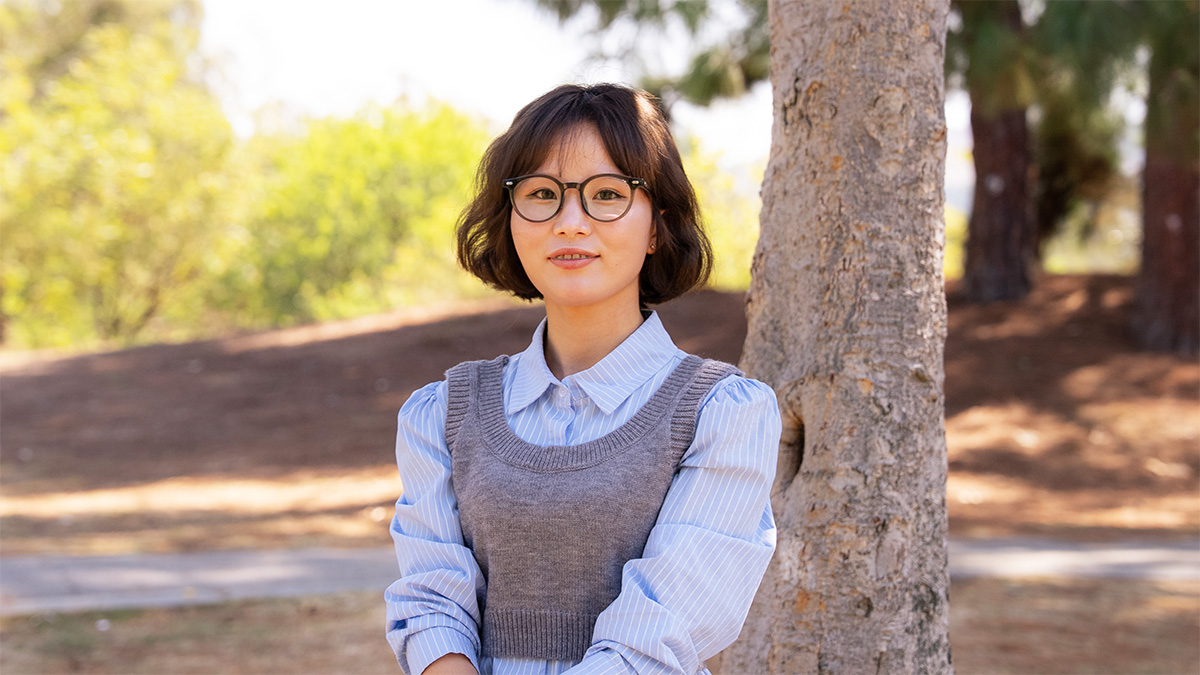
You were never supposed to know my name, see my face, or hear my story. Because I was one of 26 million lives hidden inside North Korea.
I was born in the North Korean capital, Pyongyang. The first time the government decided my future without my consent, I was only a child. My family was exiled to a rural fishing village because of my grandmother’s religion.
In the system we were living in, not even your beliefs or thoughts are truly your own.
On my way to school, youth league officers would inspect my clothes and belongings, punishing me for even a hairpin or a skirt that was a few centimeters too short. At school, we were taught that “we live in the most dignified nation in the world,” but outside those walls, people were collapsing from hunger in the streets.
Careless words overheard by a neighbor could turn into a knock at the door in the middle of the night. The radio played government broadcasts all day long, and searching other frequencies was a risk no one dared to take. This is how the North Korean government maintains control over people. By convincing you that survival depends on submission.

I returned to Pyongyang as an adult. I majored in table tennis at the Pyongyang University of Physical Education and imagined myself making a new life, built on talent and hard work.
But reality was nothing like what I had dreamed. I came to understand a deep, painful truth: In the end, everything was determined by how well you obeyed, not how hard you worked.
Frustration and emptiness built up until I finally decided to leave Pyongyang.
I wanted to help support my mother and aunt, so I moved to the coast to try and build a life of my own. My mother used all of her hard-earned life savings to buy me a small wooden fishing boat so I could start a business harvesting clams.
That boat was more than a way to make a living. It was a daily reminder of her sacrifice, and the depth of their love and trust in me. If the money I earned with my own hands could put even one less wrinkle on her forehead, that was enough for me.
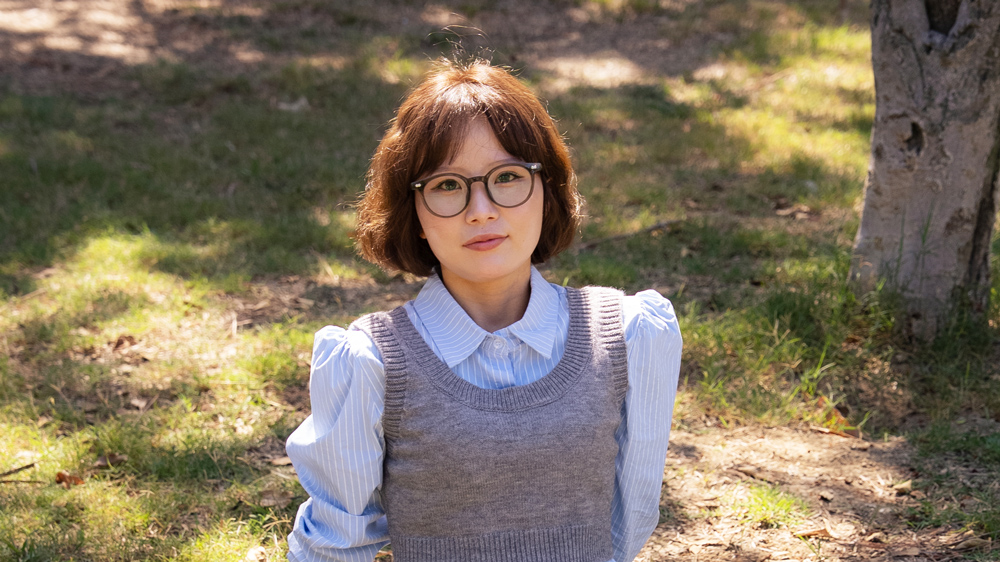
As a boatowner, I woke up early in the mornings to prepare supplies, get the crew together, and encourage them. I inspected the condition of the boat and hired people to help fix the engine and other faulty parts. Although I couldn’t go out to sea because I’m a woman, I was responsible for ensuring the ship operated smoothly.
But the harder I worked, the more government officials came to me—demanding baskets of clams and money. They justified their demands by saying: “The Party orders it,” threatening to punish anyone who refused. Every night I agonized over how to protect my people and keep my business going, and how I should respond. In those moments, I would remember the love and devotion my mother and aunt had poured into me and it gave me strength to persevere.
To escape my reality, at night I secretly watched South Korean TV shows on a television that was smuggled in from China.
My world turned upside down. With my friends who were also watching South Korean media, we would cautiously express our dissatisfaction together while also copying the hairstyles and outfits we saw in dramas. Sometimes, we would even try to mimic South Korean words or accents when talking or texting together.
But under Kim Jong Un, punishments became much more severe. Two people I knew were executed for watching and sharing foreign media. Our lives became harder, control over young people became more intense, and our resentment began to grow.
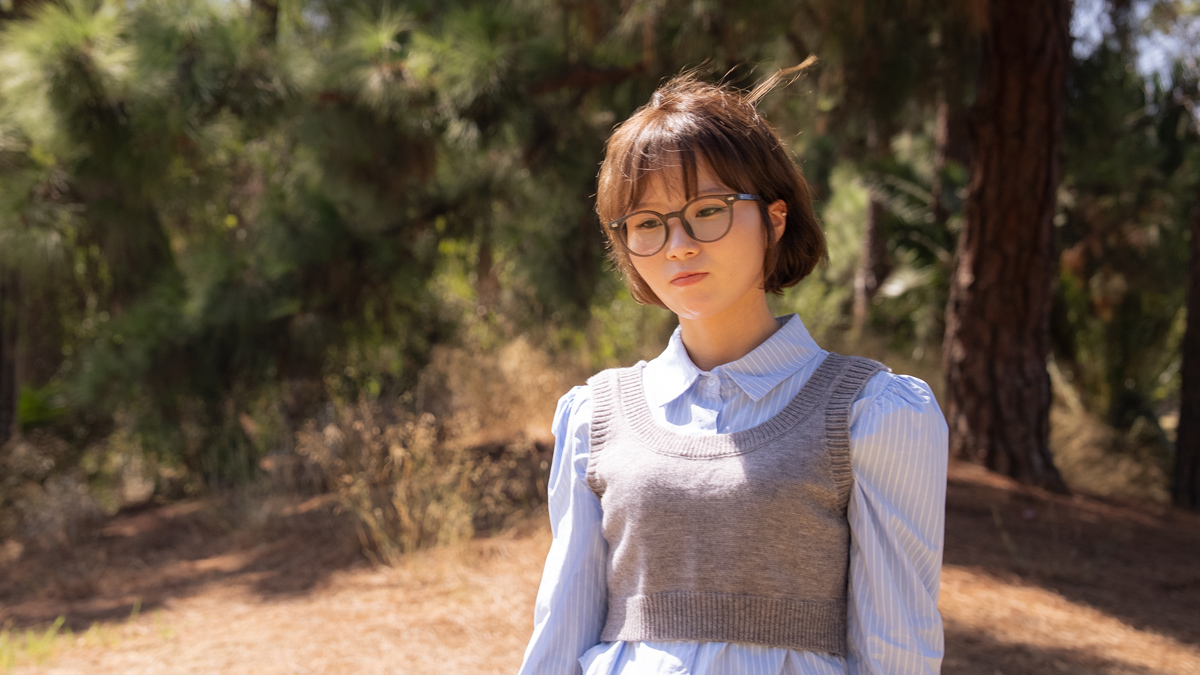
But no matter how much they tried to repress us, frustrated young people like me continued watching forbidden content as a way to forget reality. Foreign media has quietly found its way into North Korea for decades. As I grew up, it began spreading more than ever before, through USBs passed between friends or broadcasts picked up on illegal devices.
Many defectors, like me, can remember the exact episode of a TV show, a specific South Korean song, or even a traffic report, that planted the first seeds of doubt.
Of course, dramas and movies don’t tell the whole story, but they show a life that contradicts everything we were taught. And it makes you wonder: if life is so different out there, why does it have to be this way here?
I realized it doesn’t just show people that different lives exist. It gives them the belief that their life could be different. And that belief gives people the courage to choose a different future.
The thing about information is once you learn something, you cannot unlearn it. I remember watching people on my screen speak freely, laugh openly, and pursue their dreams—things that were unimaginable in North Korea. For the first time, I wondered if everything we were taught might be wrong. That doubt led to questions, and my curiosity became too strong to ignore. Now that I had seen the truth, I could never go back to the person I was before.
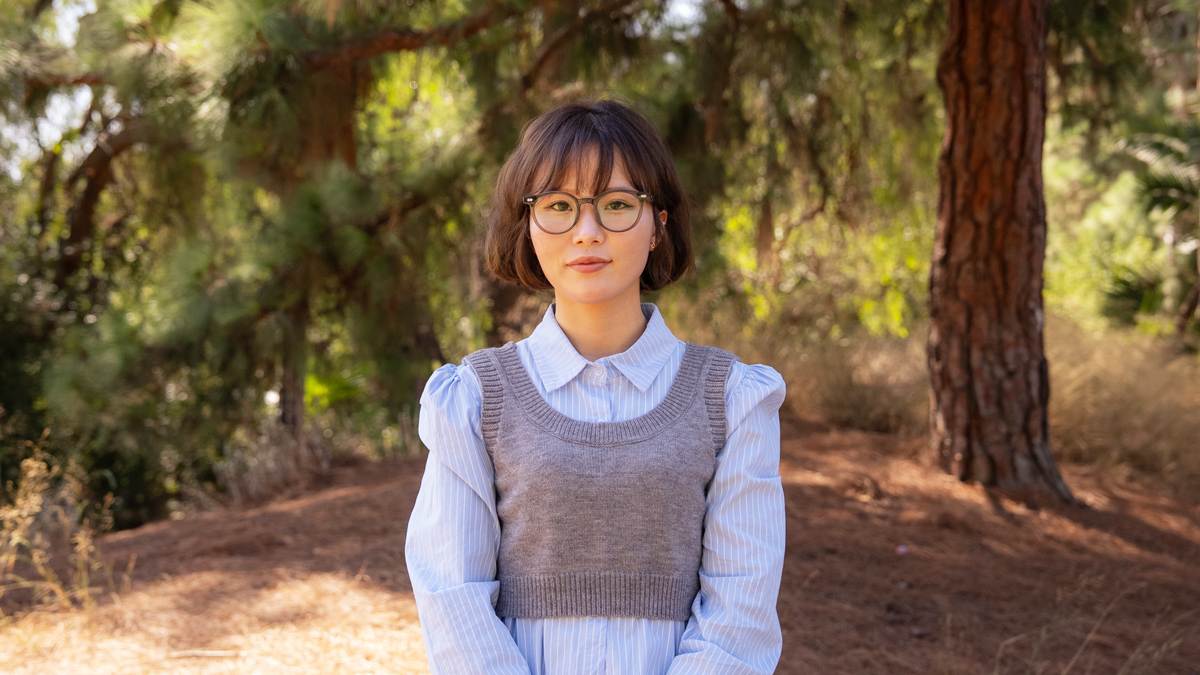
Escaping North Korea cannot be explained by the simple word “leaving.” This was especially true for me because I escaped together with my mom and my aunt. They had placed their trust in me when they gave me money for that boat. And now I was placing my trust in that boat to carry us across the sea to freedom.
I planned our escape in complete secrecy.
I bought a smuggled GPS device from China, carefully traced our route, observed the currents and tides, learned the patrol schedules of the guard boats, and figured out the blind spots of the coastal guard posts. I meticulously checked the condition of the boat and quietly prepared all the food and supplies we would need. I trained my body for the wind and the waves, and my mind for the terror of being caught.
Some nights I woke up in a panic. Other times my confidence crumbled and I thought, maybe I should give up and just accept the life I have. But in those moments, I imagined what waited at the end of the journey.
I wasn’t leaving just to stay alive. I was leaving so that I could live like a human being.
On the night we left, we climbed into my boat and pushed off into the dark water. I gripped the rudder and let the current carry us south, carefully navigating around the guard posts and patrol boats who were on the water looking for people like us.
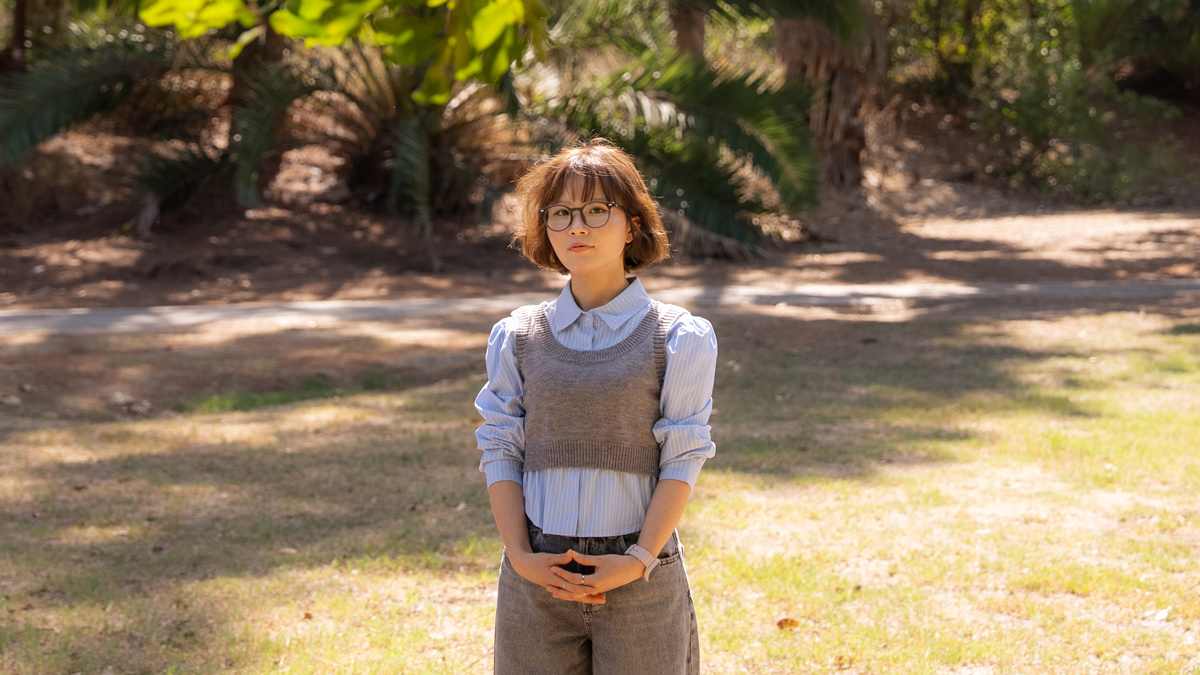
I knew what would happen if we were caught. Arrest. Endless investigations. Humiliation. Public trials. Political prison camp. And the possibility that I might lose the people I loved most in the world.
My mother and aunt were trembling with fear. I had to hide my own fear to tell them what I could only hope. We will survive. We spent the night being tossed back and forth on the East Sea. Black waves lifted our boat like a toy before smashing it down again. Every crash sent water over the sides and threatened to swallow us up.
Suddenly, a patrol ship appeared. Its lights stabbed the water, blinding us, and started coming closer and closer. It was coming for us. My chest pounded so hard I felt it might burst. I thought of the sleeping pills we had brought.
We had agreed that if capture became inevitable, we would rather take our own lives. It was a fate we preferred to execution or prison camps. As the coast guard closed in, I wondered, is it time for the pills?
But I refused to give in. We were so close. I steered away from the searchlights, surrendered the boat to the churning water, and pushed on forward.
Suddenly, the patrol vessel stopped and turned back around. They could no longer chase us. We had reached the maritime border. The sea calmed, as if it was welcoming us to freedom. And as the sun rose, we saw the outline of land.
A South Korean fisherman, hearing radio reports that North Korean patrols were in pursuit, realized we were the boat being chased. He steered his boat toward us and said, "Welcome. You are safe now."
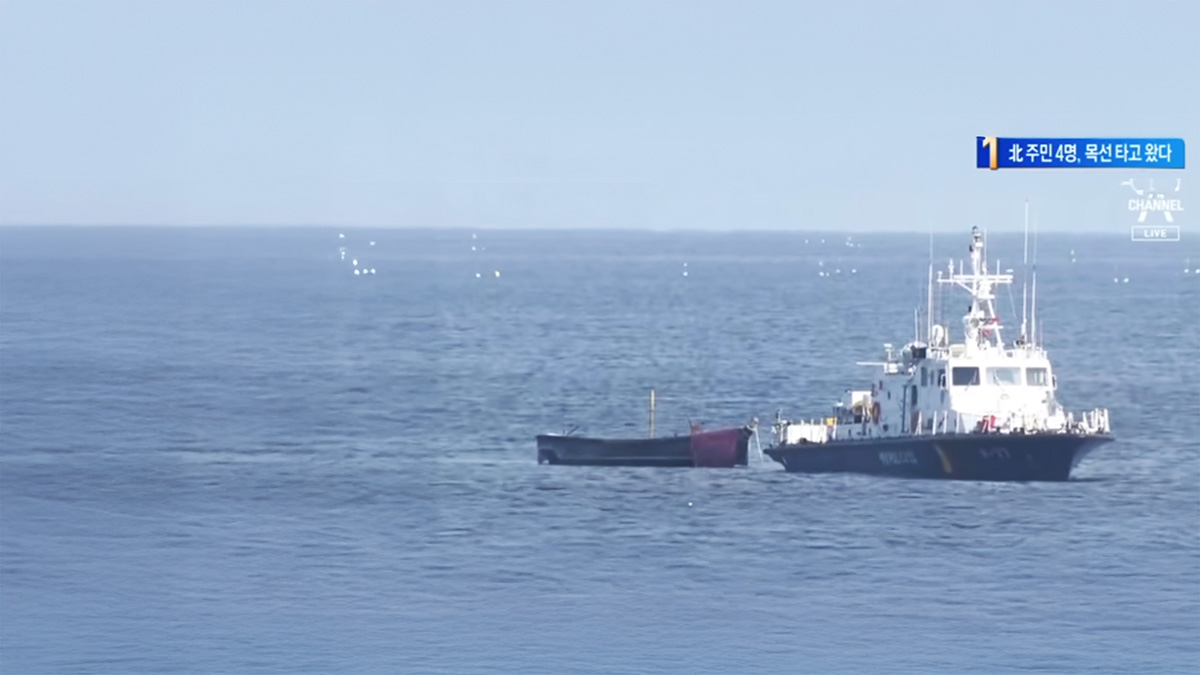
It’s been almost two years since we arrived in South Korea.
I still remember moving into our apartment and using a showerhead for the first time, experiencing hot water flowing straight from the tap. I couldn’t believe it. That day, my mother, my aunt and I took turns showering, laughing, and saying to each other, “So this is what a human life feels like.”
For the first time in my life, I could choose my studies, my job, my clothes, my hobbies—even the way I spoke—for myself. It felt like an entirely new world. We were being reborn, leaving behind a past of silence and control for a life with dignity and a future we could choose ourselves.
My mother began studying for a professional certification. And my aunt enrolled in social welfare classes to help others. I studied hard and was recently accepted into Ewha University. I have also been active in North Korean human rights activism and I even started a YouTube channel to show the world what it looks like to start a new life in South Korea.
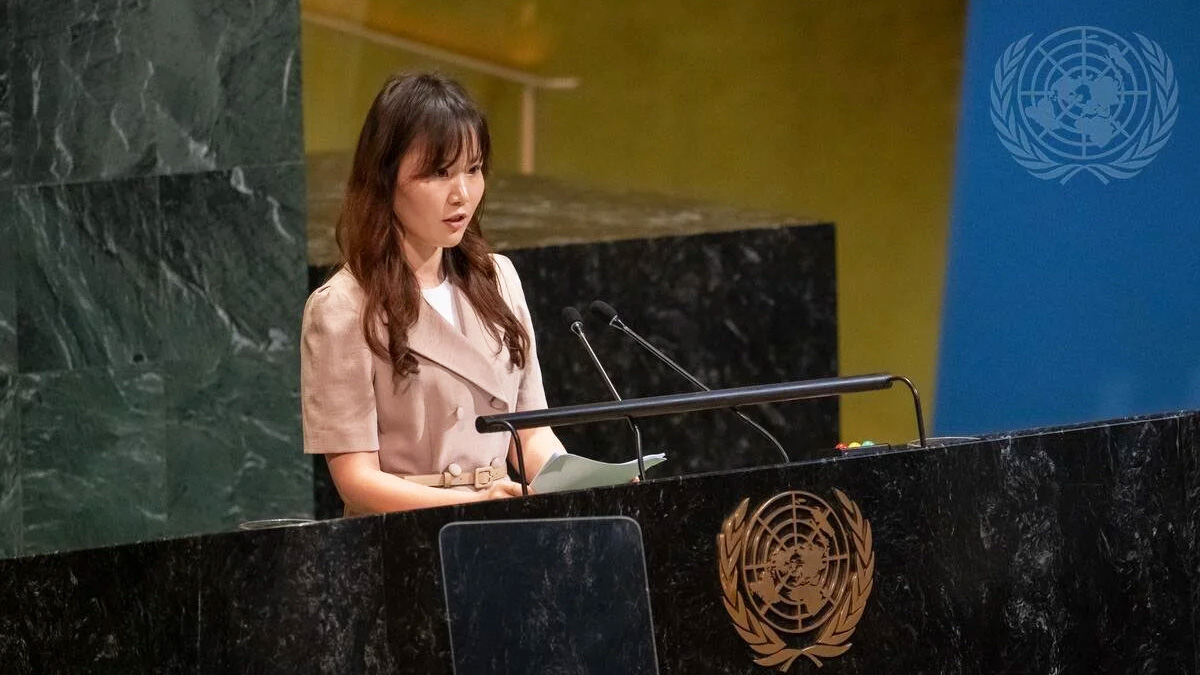
Hope is dangerous for the North Korean government. Millions of people live with anger and sadness, but even more live in resignation. Most do not realize their rights are being violated—they don’t know what “rights” are. I once believed it was normal for the state to control every part of our lives. I thought every country lived this way.
But the moment you realize life could be different, hope begins to take root. And once hope exists, change is no longer unimaginable.
My dream is that someday North Korea will be a place where young people choose their own paths, where no one is punished for their words, and where every person lives as the true owner of their life. While so much of North Korea’s reality is dark, change is already happening. And what sparks that change is information. A single truth from the outside world, a glimpse of what life could be, can plant a seed of doubt, or ignite a spark of hope.
That’s why I speak out. If I don’t tell my story, who will tell it for me? If I stay silent, will the death of my friends, and the suffering and starvation my family endured be forgotten?
Right now, in North Korea, there is someone just like me—sitting in a dark room, secretly watching a South Korean broadcast, quietly wondering: Could I also live like that?
I want my story to prove that this hope can become a reality. I want to stand in the middle of that change. Not just as someone who escaped to enjoy freedom, but as someone determined to one day share that freedom with all North Korean people.
Freedom is not given, but it is something we can achieve. With your support, we can write a future where all North Korean people are free.
Foreign media gave Gyuri a glimpse of the outside world—and the courage to seek freedom.
Increasing North Korean people’s access to outside information is one of the most effective levers for change in the country. And that is exactly what we’re doing at Liberty in North Korea
In partnership with North Korean defectors and engineers, LiNK develops tailor-made technology, tools, and content that help people inside the country access more information more safely. These glimpses into the wider world build people’s resilience to the regime’s propaganda, and emboldens them to imagine a different future for themselves and their country.
Help fuel work that’s directly supporting North Koreans driving change on the inside.




